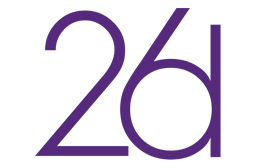11:19 Who are you and what is your relationship with the Foundation?
15:02 Federico, how did you come up with the idea to organize a foundation for older LGBTQ+ people?
15:09 The foundation came to be in 2011 in Madrid’s Chueca neighborhood?
07:25 When we mention the LGTBIQ+ collective, what lived realities are we referring to?
08:56 Federico, how does this center respond to the realities of elderly members of the LGBTQ+ collective?
11:13 Is it the only center in Spain or are there other centers like it?
13:52 Why did you choose the legal formula of the Foundation for this initiative?
13:52 Federico, did you receive help, subsidies and support from any institutions to set up this Foundation?
20:25 Do people who participate in your activities pay a fee?
20:25 If no fees are paid, how are the Center’s activities financed?
21:57 Do you feel that you are solving a problem that should be addressed institutionally within a welfare state?
24:45 Demographically speaking, what is the profile of the people who participate in this Foundation?
27:59 Those of us who dedicate ourselves to cultural criticism usually denounce a lack of historical memory in relation to the crimes committed during Franco’s dictatorship against anyone who disagreed with the dictates of the regime. How did homosexuals, and lesbians experience this period of history?
31:32 Did Franco’s repression affect men and women equally?
35:32 What testimonies and documentation exist of the history of mistreatment suffered by all these people during the dictatorship?
40:27 You mentioned that during Franco’s regime, families, in general, were spaces of penalization, denunciation and surveillance for the human development of people in this group [LGBT+], what public and private spaces existed for the development of a non-heteronormative way of life?
43:29 You mentioned the courage of those who chose to expose themselves publicly to claim their “right to be” in the midst of Franco’s dictatorship. How were people who exposed themselves publicly and continuously confronted the heteronormative authority imposed by the regime received within the collective itself?
47:12 During Franco’s regime, was there a collective activity of protest and denunciation or was it more a set of individual responses?
52:06 Throughout the conversation about life under the Franco dictatorship, you have mentioned a corollary of situations of imprisonment, torture, psychiatric internment, humiliation, etc., for the people of this social group. In the eighties a parenthesis was opened towards a supposed democracy in Spain, do you think that in this democratic time there have been mechanisms and institutional processes that grant justice, reparation, truth and dignity to the people of this group?
59:39 Curiously, together with the lack of a historical memory that supports rigorous processes of justice, reparation, dignity and truth, at the same time, in 2005, Spain passed the same-sex marriage law. On the other hand, millions of people celebrate Pride day every year in different cities of the country, isn’t this image paradoxical or contradictory?
1:02:26 Are there spaces for intergenerational meeting and dialogue within the LGTBIQ+ community?
1:04:34 What about the negative stigmatization of people belonging to this group, has this stigma changed with the end of Franco’s regime?
1:09:39 From what you have been saying, it seems that progress is being made in terms of the recognition and “dignification” of the collective in the order of everyday social life, but at the same time we are witnessing the resurgence of an extreme right that demands the removal of symbols that do not respond to the celebration of a heteronormative reality. What is your reading of a possible regression of rights in the face of reactionary policies?
1:14:13 Many of elderly LGTBIQ+ people have not only suffered the harshness of Franco’s repression, but in many cases, they have been abandoned by their own families. What problems and realities do they encounter in the various stages of their aging and death?
1:18:34 Can you tell us about a case that illustrates the role played by this Foundation in the accompaniment of these people through old age and death?
1:21:43 Is it because of one of these stories of accompaniment that your Residence is called Josete Massa?
1:29:39 Analyzing your activities, I realize that there is an important focus on the area of education and awareness-raising aimed at reinforcing this paradigm shift. How do you participate in the movement for formal and non-formal expanded education?
1:33:49 What maintains your energy and your dedication in this fight for the rights of the LGTBIQ+ collective in a complex context of multidimensional crisis?

“On December 26, 1978, the Council of Ministers of Spain ratified the modification of Law 16/1970 on Dangerousness and Social Rehabilitation. This law, approved by the Franco regime on August 5, 1970 (and which replaced the old Vagrancy and Maleante Law of 1948), punished anyone considered socially dangerous, including people from the LGTBIQ+ community. Under the imposition of this rule, many LGTBIQ+ comrades were unjustly imprisoned, tortured, mistreated, persecuted, humiliated, or subjected to shock treatments. Simply for having a sexual orientation or a sexual or gender identity that did not fit with what the regime wanted. This date – December 26, 1978 – is marked in the history of the LGTBIQ+ community in Spain, continuing their fight for equal rights.
One day, during a break in Gran Canaria, Federico Armenteros saw an older gay man walking towards the sea with the support of his walker. At that moment, he felt pain upon realizing the invisibility of older LGTBIQ+ people. “Where are they?” he wondered. A question that marks the beginning of the development of the December 26 Foundation, which would be constituted on October 25, 2010, with the aim of making older LGTBIQ+ people visible.”





